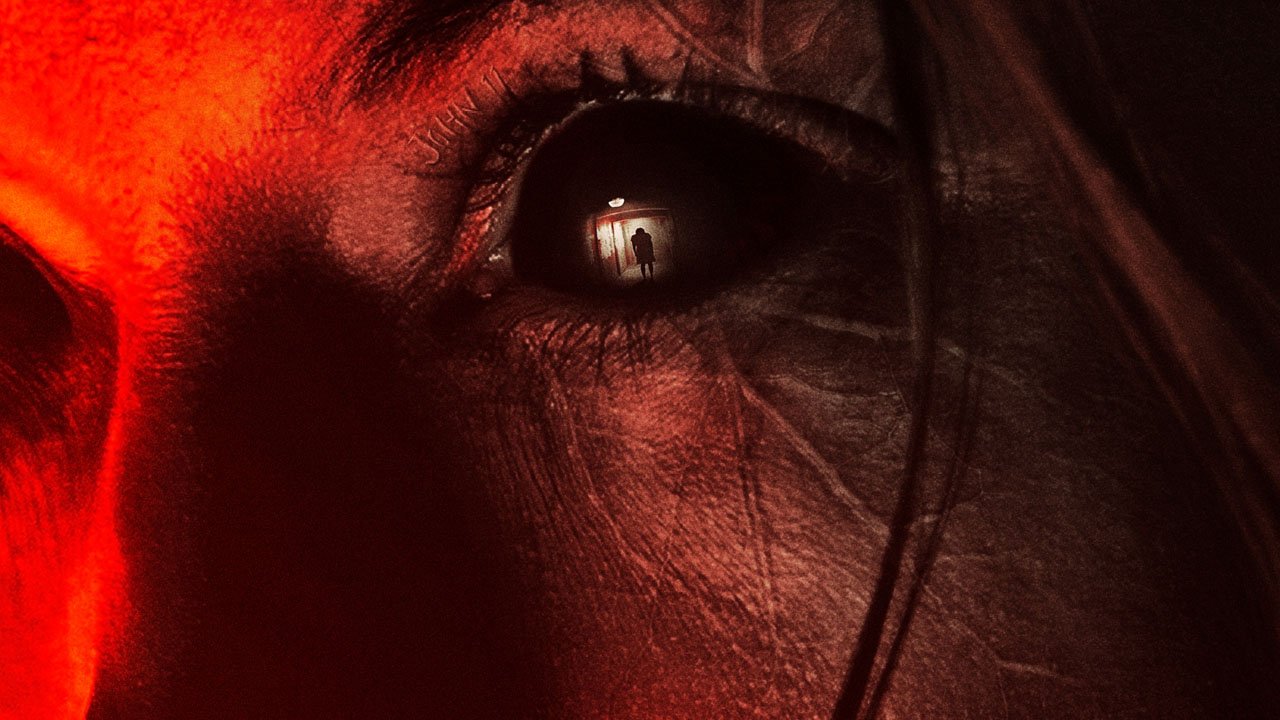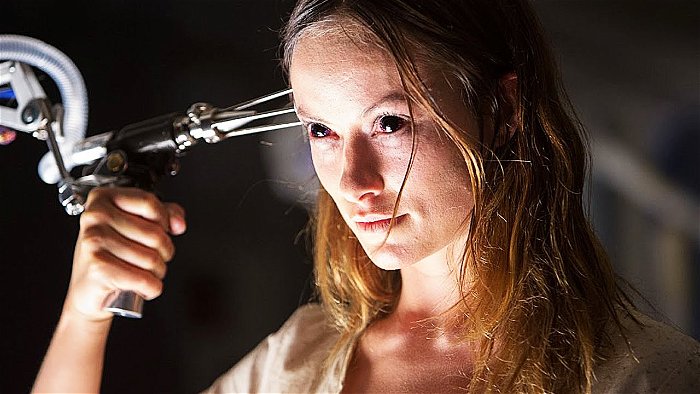
If horror history has taught us anything, it’s that scientists who attempt to cheat death get always get burned. The latest production from the good folks at Blumhouse takes that lesson extremely literally. Once again, a gang of scientists who have clearly never read Frankenstein decide that they’ll be the ones who finally figure out how to conquer death, only to end up bringing some hellfire back from the beyond the grave. It’s actually not a bad concept for a little horror movie and as the narrative engine revs up, The Lazarus Effect even feels loaded with potential. Unfortunately that potential disappears once the movie finally gets to the scare section. It’s rare to find a horror movie that’s better in set up than climax, but this is one of them. What a shame.
Awkward comedy specialist Mark Duplass and Tron sexpot Olivia Wilde star as the pair of scientists determined to beat death with a special serum. To complicate matters and set up Mary Shelley approved themes, they also have a philosophical split. He’s a hardcore rationalist scientist convinced that there’s no life after death so why not extend life? She’s a born again Christian following a traumatic childhood event worried about the spiritual implications of their work; just not enough to stop the experiment, of course. So along with a pair of 20-something assistants (Community’s Donald Glover and American Horror Story’s Evan Peters) and a plucky young documentary filmmaker (Sarah Bolger) they go ahead and bring a dog back to life. It’s a miracle with some creepy side effects, but ultimately a triumph. Unfortunately, that draws a bit too much attention from the powers financing the scientific shindig, so the dependably creeptacular Ray Wise shows up to shut things down. Undeterred, the gang decides to attempt one last experiment in the middle of the night (always a good idea). Wilde dies by accident, so they go ahead and bring her back to life. Unfortunately, she stopped off in hell before the return and comes back with blacked out pupils, a bunch of superpowers, and a handful of morally righteous speeches.
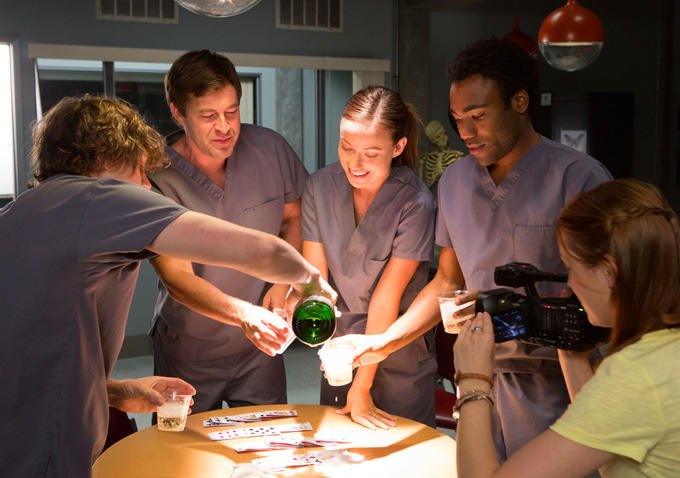
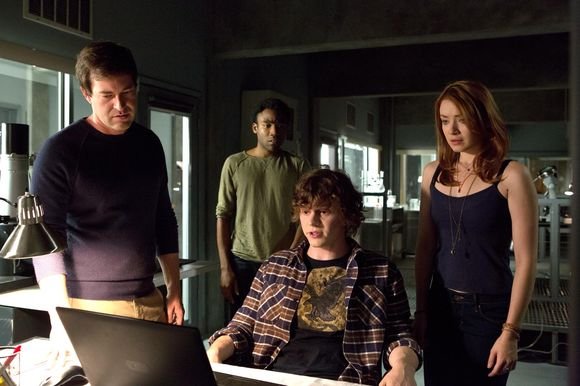
In the early going, The Lazarus Effect is actually a pretty charming little B-movie. The cast is far better than the material (as is the Blumhouse way when their movies are cooking like Sinister or Oculus) and they make an age-old genre yarn feel like something vaguely fresh and naturalistic. Early experiments with the dog lend some subtle scares and a chilly atmosphere. In general, the movie feels far stronger than it has any right to. It’s enough to get you all excited for a fire n’ brimstone spook out finale, but when it finally comes the results are disappointing. While long-time documentary director David Gelb handles characterization and atmosphere with ease, he seems a little lost when the time comes to give his audiences the murder set pieces that they’ve been waiting for. Sure the bulk of the movie works and it flies by at a trim 83 minutes including credits, but unfortunately horror movies kind of depend on spooktacular pay offs, now don’t they?
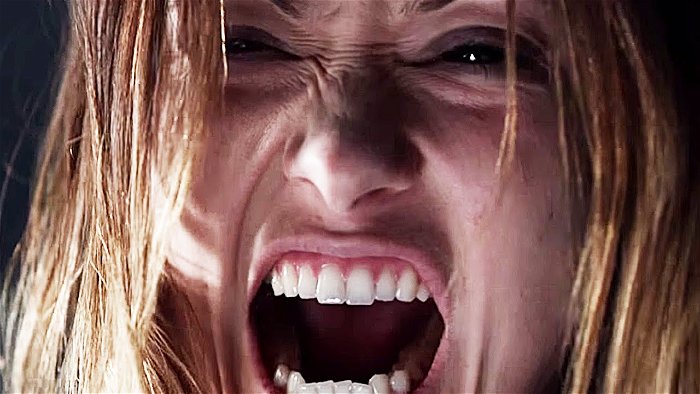
When The Lazarus Effect finally delivers the goods it transforms from a Mary Shelley-style philosophical horror flick into one of those dreadful post-Elm Street supernatural slashers. Olivia Wilde turns into a killer with superpowers and no matter how hard the actress tries to deliver the goods, she just doesn’t have much of a monster to play. The movie devolves into a series of speeches, hallucinations, and tasteful slasher kills that were presumably designed to feel nostalgic for late 80s rubber fantasy horror, yet ultimately feel like a cop out. The filmmakers don’t have a particularly deft touch for staging set pieces and rather than offering a disturbing climax, The Lazarus Effect devolves into a check list of obvious genre cliches with very little in the way of ingenuity or visceral impact. That’s a problem. A big one.
The fact that the flick works reasonably well in the long wind up to its failed climax makes that dropped ball finale all the more frustrating. Creating a compelling set up and enjoyable characters in a horror yarn is the biggest challenge that filmmakers rarely pull off. To deliver that and then fail at all the spectacle that audiences paid to see is deeply frustrating. That’s especially true given that the “gates of hell” subgenre that The Lazarus Effect apes hasn’t been run into the ground as hard as most horror subgenres and it would have been nice to see another decent entry in the canon. Oddly, this is actually the second “gates of hell” movie in the last 12 months after years of being absent from screens. Last summer Platinum Dunes treated us all to As Above, So Below, a hellbound found footage lark that delivered a genuinely chilling and surreal climax after an almost unwatchable set up with indistinguishably dull characters. In a perfect world, we could have gotten one movie with a set up as good as The Lazarus Effect and a pay off as good as As Above, So Below. That could have been a minor classic. Didn’t happen though. So instead, we‘ve got two different mild failures that fell apart in the opposite ways. Sigh…maybe next time.
